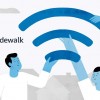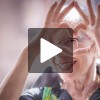Do You Know These 8 Coronavirus Scams and Myths?
- Details
- Written by The FoolProof Team
- Category: Articles

Crisis and disaster headlines typically generate misinformation and scammers try to take advantage of the situation. The novel coronavirus is no different.
Scammers will use emails, text messages, social media, and even ads to catch you.
Scammers want to collect your personal or financial information or get you to download malware to do the same thing. Or they may be selling products they claim to cure or prevent the virus. They will use emails, text messages, social media, and even ads to catch you.
Steps You Can Take
Coronavirus related scams aren't going away any time soon. So take these steps to keep your personal information, financial information and your devices safe.
- Make sure your security software is up to date on all your devices.
- Don't click on links in unsolicited emails particularly those that ask for money.
- Verify the information through other sources including searches.
Myths and Scams
Here are 8 myths and scams you should be aware of. It's a trustworthy list of resources to help you separate myth from fact or science.
Myth Busters from the World Health Organization (WHO)
-
Coronavirus: Scammers Follow the Headlines from the FTC
Beware of Products Touting False Coronavirus Claims from Consumer Reports
-
Coronavirus Scams Target Your Fear. Don't Let Them from CNET
Look Out for Coronavirus-Related Investment Scams from the U.S. Securities and Exchange Commission
Scam Alert: Afraid of Getting Sick? Don't Fall for a Coronavirus Scam from the Better Business Bureau (BBB)
-
How to Avoid Falling Victim to a Coronavirus Phishing Email Attack from NBC News
Live Coronavirus Map Used to Spread Malware from Krebs on Security
More Scams
These are just a few of the scams that are occurring. Some others include:
Fake websites selling hard-to-find medical supplies that take your money and don't deliver anything.
Emails from fake CDC or WHO doctors asking you to donate bitcoin or to download an attachment for more information
Emails asking for donations for coronavirus victims, medical staff, or coronavirus research.














